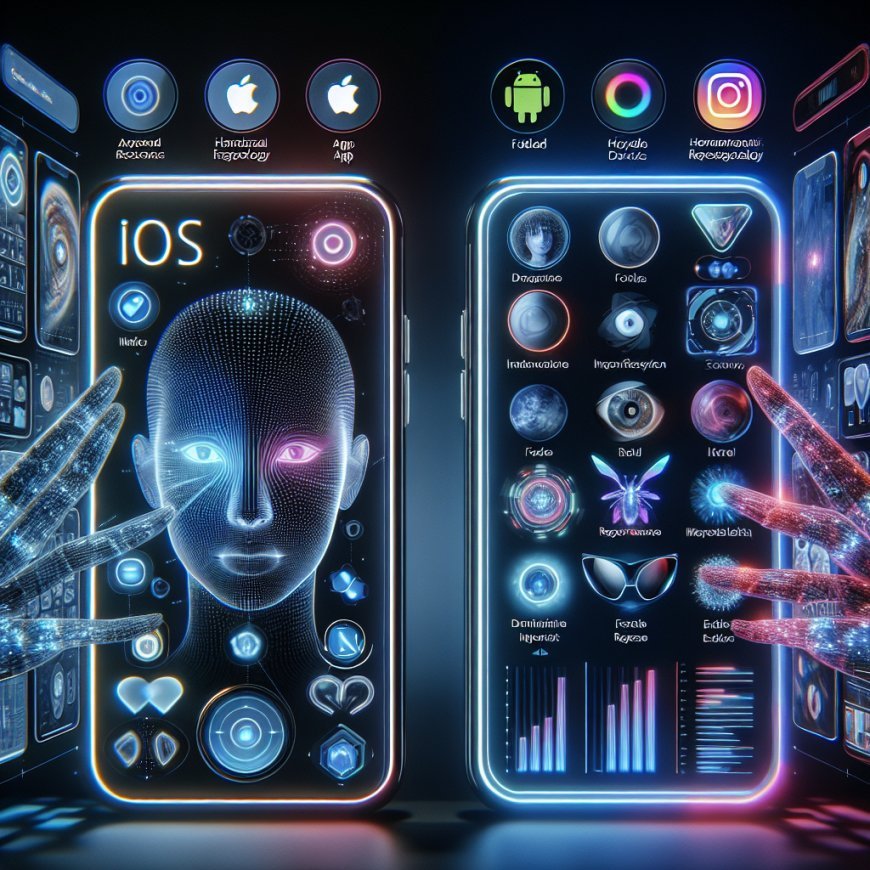How do iOS and Android compare in terms of features in 2025?
Discover how iOS and Android compare in 2025, from user interface and privacy to AI features and ecosystem integration. Learn which platform suits your needs at Varient News.

How do iOS and Android compare in terms of features in 2025?
iOS vs. Android in 2025 - A Feature Comparison
Introduction
As of 2025, the competition between iOS and Android continues to shape the smartphone landscape. Both operating systems have evolved significantly, offering unique features and experiences tailored to different user preferences. This article provides a detailed comparison of iOS and Android in 2025, highlighting their key features, strengths, and differences to help you decide which platform suits your needs.
Key Feature Comparison
1. User Interface and Customization
- iOS: Known for its sleek, minimalist design, iOS in 2025 maintains its signature simplicity. The interface is intuitive and consistent across devices, with enhanced animations and a focus on accessibility. However, customization options remain limited compared to Android.
- Android: Android continues to lead in customization, allowing users to personalize home screens, widgets, and themes extensively. The Material You design language has evolved further, offering dynamic theming based on wallpapers and user preferences.
2. App Ecosystem
- iOS: The Apple App Store remains a powerhouse, offering a curated selection of high-quality apps optimized for iOS devices. Developers often prioritize iOS for new releases, ensuring a seamless experience.
- Android: The Google Play Store boasts a larger app library, including more niche and experimental apps. Android’s open ecosystem also supports sideloading, giving users greater flexibility in app choices.
3. Privacy and Security
- iOS: Apple continues to emphasize privacy, with features like App Tracking Transparency, on-device processing, and advanced encryption. iOS 19 introduces new privacy tools, such as enhanced biometric authentication and data usage reports.
- Android: Android has made significant strides in privacy, offering features like Privacy Dashboard and one-time permissions. However, its open nature makes it slightly more vulnerable to security risks compared to iOS.
4. Integration with Ecosystem
- iOS: Apple’s ecosystem integration is unmatched, with seamless connectivity between iPhone, iPad, Mac, Apple Watch, and AirPods. Features like Handoff, Universal Clipboard, and AirDrop enhance productivity and convenience.
- Android: Android integrates well with Google services and third-party devices, offering features like Nearby Share and cross-device syncing. However, its ecosystem is less cohesive compared to Apple’s.
5. Performance and Hardware
- iOS: iOS devices, powered by the latest A-series chips, deliver exceptional performance and efficiency. The software is optimized for Apple’s hardware, ensuring smooth operation even on older devices.
- Android: Android devices vary widely in performance due to the diversity of hardware manufacturers. Flagship devices with Snapdragon or Tensor chips offer top-tier performance, but mid-range and budget devices may lag behind.
6. AI and Smart Features
- iOS: Apple’s AI capabilities, powered by Siri and on-device machine learning, focus on privacy and personalization. iOS 19 introduces advanced AI features like predictive text, smart photo editing, and context-aware suggestions.
- Android: Google’s AI, integrated into Android, excels in areas like voice recognition, real-time translation, and personalized recommendations. The Google Assistant remains a standout feature, offering robust functionality.
7. Updates and Longevity
- iOS: Apple provides consistent and timely updates for all supported devices, ensuring long-term software support. iOS 19 is available on devices as old as the iPhone 11, showcasing Apple’s commitment to longevity.
- Android: While Google has improved update delivery, fragmentation remains an issue. Flagship devices receive updates promptly, but mid-range and budget devices often lag behind or miss updates entirely.
Conclusion
In 2025, both iOS and Android offer compelling features, catering to different user needs. iOS excels in privacy, ecosystem integration, and performance, making it ideal for users seeking a seamless and secure experience. Android, on the other hand, shines in customization, app diversity, and AI capabilities, appealing to users who value flexibility and innovation. Ultimately, the choice between iOS and Android depends on your priorities and preferences. For more tech insights and comparisons, visit Varient News and explore our Tech page.
What's Your Reaction?
 Like
1
Like
1
 Dislike
0
Dislike
0
 Love
0
Love
0
 Funny
0
Funny
0
 Angry
0
Angry
0
 Sad
0
Sad
0
 Wow
0
Wow
0




















































